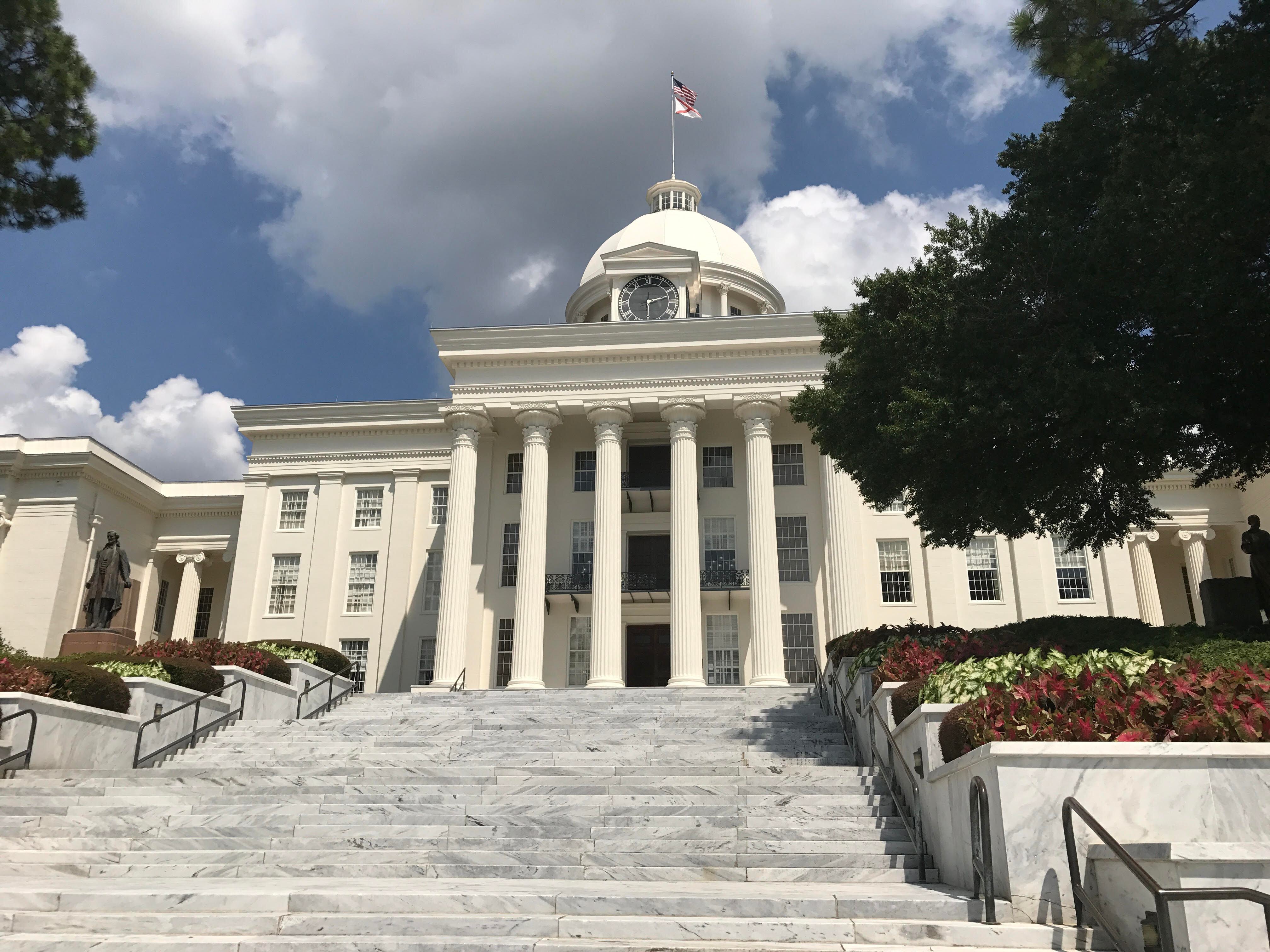HOMEWOOD — There's been a lot of talk in Alabama politics about the significance of incentives in developing the state's economy.
State legislators have consistently insisted the state can't afford to permanently cut income taxes, much less eliminate them altogether. Lawmakers have also strayed from reforming the state's retirement system, even as it reported negative returns in 2022.
One economist says they're all wrong.
Dan Smith is the director of the Political Economy Research Institute and professor of economics at the Jones College of Business at Middle Tennessee State. He is also an adjunct professor at Vanderbilt University. On Thursday, he spoke on a panel at the "From Red Tape to Red States" program at the Valley Hotel in Homewood.
Troy University's Johnson Center for Political Economy and the American Institute for Economic Research (AIER) co-hosted the event, in which two panels of economists and a keynote speaker discussed how Alabama could promote economic prosperity by dialing back on special interests and regulations.
Smith said regarding economics, Alabama has a history of making "drastic moves in the wrong direction."
Alabama Gov. Kay Ivey and several Democrat and Republican state legislators have called for renewing economic incentive programs, such as the Alabama Jobs Act, which offers tax credits and abatements to certain businesses in Alabama. Economic incentive proponents argue the special privileges and awards attract more business to the state and create jobs.
Smith, who participated in the panel "Fiscal Responsibility in the State," said this is not the case and that there is no evidence economic incentive programs work. In fact, they may even discourage homegrown entrepreneurs, and entrepreneurs out of state could be discouraged because Alabama continues to expand incentive programs, regardless of the evidence.
"[Economic incentive programs] may create short-term jobs, but they certainly do not create long-term jobs," Smith insisted. "... They provide benefits for the politicians in terms of donations and political support … Right now, these tax incentive programs tend to favor large businesses that are out of state, disadvantaging in-state businesses that have paid these taxes for generations."
According to Smith, decreasing the tax burden for everyone could make Alabama an attractive place to live, noting that tax collection per person in Alabama was relatively high compared to neighboring states.
Smith suggested eliminating the state income taxes and raising property taxes instead.
"The property tax is actually very low compared to other southeastern states," Smith said.
Some members of the audience took issue with this suggestion.
"If we raise taxes on [property owners], what are we giving them?" one attendee asked in a Q&A session following the panel presentations. "What regulations are in their way that we can reduce? You're not just going to get something from nothing. You can't just say, 'Hey, property owners, we're raising your taxes.' You need to offer them something."
"It comes with that bargain," Smith responded. "Do not take away 'let's raise property taxes.' If that's the only thing you take away from this, then I've failed."
Smith also criticized the Retirement Systems of Alabama (RSA) and its CEO, David Bronner, the state's highest-paid employee who makes over $800,000 a year.
Smith said the RSA puts taxpayers at risk, and entrepreneurs examine a state's retirement system when relocating because they don't want taxes to increase in the future due to unfunded liabilities.
"They've been essentially engaging in riskier and riskier investments to try to get to that high rate of return, and this puts a lot of risk on taxpayers, and it hides the extent of the unfunded liabilities that they have," Smith said.
According to Smith, Bronner is a leftist who uses the RSA newsletter to convince state employees of his policy positions.
"The head of the RSA has been in place for several decades and has a newsletter that he sends out that is essentially propaganda," Smith said. "Very leftist. Takes a very strong stance and sends it out to all public employees using tax dollars. That's a big red flag to someone like me who is looking at Alabama."
Smith named several key priorities for making Alabama a fiscally attractive destination for economic development, including eliminating economic and film incentive programs, privatizing public services, taxing consumption instead of income, initiating school choice and reforming the RSA and the criminal justice system.
AIER's Dr. Ryan Yonk and distinguished professor and director of the Institute for the Study of Political Economy at Ball State University Dr. David Mitchell joined Smith on the panel.
Yonk discussed how state spending doesn't correlate to quality of life, whereas Mitchell explained issues involving regulations the state places on healthcare providers and advocated for allowing nurse practitioners full scope of practice to solve Alabama's access to care problem.
To connect with the author of this story or to comment, email will.blakely@1819news.com or find him on Twitter and Facebook.
Don't miss out! Subscribe to our newsletter and get our top stories every weekday morning.










